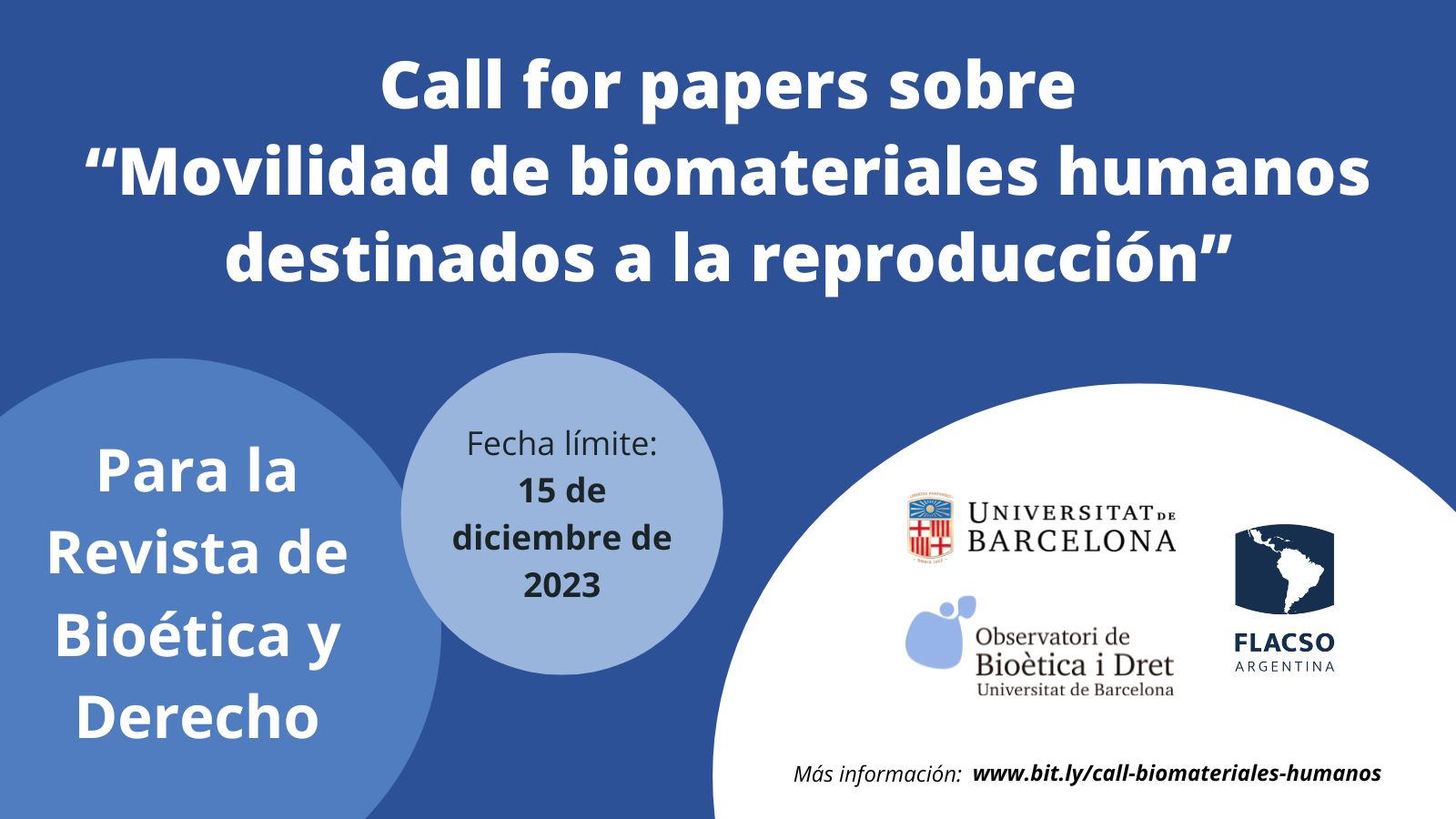The Bioethics and Law Obs.
Master in Bioethics and Law
Master in Food Ethics and Law
UNESCO Chair in Bioethics
Contact
- Bioethics and Law Observatory
- UNESCO Chair in Bioethics
- University of Barcelona
- Faculty of Law
- Ave. Diagonal, 684
- 08034 Barcelona
- (+34) 93 403 45 46
- obd.ub@ub.edu
- Master in Bioethics and Law
- (+34) 93 403 45 46
- master.bd@ub.edu
Call for papers on "Mobility of human biomaterials intended for reproduction" for the Revista de Bioética y Derecho
25.05.2023
The Revista de Bioética y Derecho of the University of Barcelona, in collaboration with Dr. Marc-Abraham Puig Hernández, Lecturer on Philosophy of Law, Dpt. of Political Sciences and Public Law of the U. Autònoma of Barcelona, announces this call for papers for a monographic issue on “Mobility of human biomaterials intended for reproduction”.

The mobility of human biological material intended for reproduction (oocytes, semen, embryos) makes it possible to dispose of and use these biomaterials in a different place than where they were obtained. The phenomenon of oocyte vitrification and biobanks gave this issue renewed vigour.
The human biomaterials supply chain encompasses, at a minimum, the collection, evaluation, storage, and distribution of gametes and embryos. Each of these phases has provided participants with specific profiles and functions to carry out assisted human reproduction.
Spain has established itself as a leading supplier of human-derived reproductive biological samples. A phenomenon that warrants further investigation, given the limitations imposed by the legislation. However, collaboration between field observation and participants is required to enable an analysis of issues such as:
- The volume of oocytes, semen and embryos stored and regulation on logistics and transport.
- The conditions necessary to ensure the storage of this type of samples.
- The weight of the decisions and criteria of embryologists, gynecologists, transporters, and other participants in this chain.
- Technical, biological, and material requirements for the transfer of samples.
- Ethics of obtaining, using, and disposing of human biomaterials for reproduction.
- Affectation on samples due to mobility between national and international clinics.
- The relationship between the participants in the donation and the destination of the samples.
- The role of national registries and the guarantee of traceability.
- The routes followed for mobility include the origin of samples and the criteria for choosing those from one country and not another.
- Market vs. universal access in accessing oocytes, semen, and embryos.
The journal will accept only original papers written in Spanish, Catalan, French, English, Portuguese or Italian, with a maximum length of 6,000 words (excluding abstract, keywords, notes, references, bibliography, funding). The file must be sent in MS Word format, font Cambria or Arial 12, 1.5 spaced, thoroughly following the guidelines for authors.
Articles must be sent through this link to the “Monographic Dossier” section. They will be peer-reviewed and those that pass the selection process will be accepted for publication.
-
Deadline for submissions: December 15, 2023 (1 p. m. CET)




